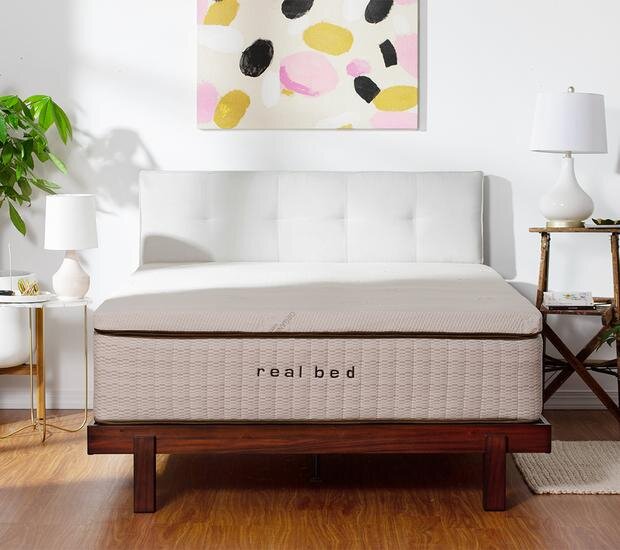Sleep and Alzheimer’s: How a Lack of Sleep Can Trigger Dementia
Today’s research suggests strongly that a significant way to delay age related memory loss, including dementia and Alzheimer’s, disease is astonishingly simple. Getting a solid night’s sleep can impact the likelihood of developing these life altering conditions, and it doesn’t cost a cent to reap the benefits.
In fact it’s one of the most effective prescriptions for increasing your useful life span. The term “anti-aging” makes us think of moisturizers and supplements, but it’s sleep that we need to delay a host of medical problems.
Sleep is essential for our brain to function at its best, and affects our ability to think and create in many ways. Not only does it give your brain a chance to hard wire our memories so that you’re able to recall events like your wedding day or your grandchildren’s birthdays for years to come, it also enhances the ability to memorize experiences, skills, and complex tasks so that we can continue to repeat them.
One of the first skills that demential sufferers lose is navigation, a complex task regulated by the hippocampus, and this is often the marker that science uses as the starting point with memory issues. Staving this off for as long as possible by getting restorative sleep can add years to a life filled with high level brain function.
Further, the quality of deep sleep you are receiving right now may have serious effects on your risk for cognitive decline. Here is a list of habits you can adopt immediately to help delay the onset of many neurological conditions that affect the brain.
Avoid Sleeping In
Incredibly, as strong as the evidence is for the typical human to get 7-9 hours of sleep, there is also evidence to suggest that getting too much sleep can have a negative effect on the brain.
People who sleep longer than nine hours a night have a markedly increased risk of dementia and Alzheimer’s when compared with people who average 6-9 hours of sleep. Shoot to get the healthiest amount of sleep for your age range (7-9 hours for adults 26 to 64, and 7-8 hours for people 65 and older).
Stop Interrupted Sleep
Whether it’s caused by your partner’s sleep apnea, your neighbor’s late night habits, or a lousy mattress, disturbing the delicate cycle of restorative sleep can greatly affect your health. Fact is, people who experience restless sleep have a much higher risk of cognitive decline than those who sleep uninterrupted through the entire night. If you find that your sleep patterns are fragmented, try to using a soothing sound device to mask noise, blackout curtains, or an eye mask.
Another way to track whether or not your are experiencing sleep interruption is to download one of many sleep track apps on your phone. Run the app, place your phone near you in bed, and the next morning you can track your sleep performance, based on body movements during the night.
Look Out for Dementia Signs
Interrupted sleep is one issue we need to be aware of for sure, but but frequent night time waking can themselves be a sign or marker that you may be experiencing cognitive decline. Alzheimer’s is often associated with insomnia and excessive napping or sleeping in well beyond our normal waking hours. If you’re sleeping more than 12 hours a day, you may want to spend an hour with a sleep specialist or neurologist and get it checked out.
Of course having a comfortable and supportive mattress makes all the difference in the world when trying to improve your sleep hygiene and get 4-6 cycles of REM (rapid eye movement) sleep, where you are experiencing lucid dreaming. A sign that you are getting really high quality sleep is having a sense of awareness of dreams upon waking.

People that use chemical sleep aids like Ambien or Lunesta may actually cause REM sleep to deteriorate, because many users report having no memory of dreams when using these synthetic sleep aids.
Tampering with REM sleep, the most important restorative and healing kind of sleep you can get, alters the ability for the brain to reset, store memories, remove toxins, and build new neurons. To get a mattress that can help keep you in a restorative sleep state that heals your mind and allows your brain to perform its vital rejuvenating functions during the night, Visit our Trusted Dealer page and you’ll find a carefully vetted list of excellent mattresses that will improve your sleep patterns.
A mattress that could possibly delay the onset of memory disorders will have several unique features. For one, it will be designed to distribute load sideways, or laterally, rather than downward, which creates pressure points and causes constant tossing and turning, which interrupts sleep patterns, especially restorative REM sleep.
Imagine someone spreading pizza dough, pushing it to the side. Exactly what a great mattress should do to eliminate hotspots and pressure. A bed designed to promote deep sleep should also have a buoyant sensation that keeps you on top of the mattress, making turning and repositioning an effortless motion, minimizing awakenings and light sleep. Memory foam and latex are perfect components for creating a “deep sleep environment” and we would strongly advise buying a hybrid foam mattress with both memory foam and latex.
To narrow it down even further, here’s a list of our Best Of The Best Mattresses, which included our nine most recommended mattress for promoting deep and restorative sleep, to help you brain lay down memories and feed your neurons.
TEN OUTSTANDING BEDS THAT PROMOTE DEEP AND RESTORATIVE SLEEP

For the money, one of my top choices. The Dreamcloud Luxury Hybrid Mattress has a sumptuous cashmere quilted top that hugs you, and a thicker layer of gel infused memory foam beneath. Individually wrapped coils lift you so you don’t get buried in your mattress.
I’ve recommended it to hundreds of consumers. Excellent edge support, minimizes motion transfer. With my link, you’ll get $200 off, a free sheet set, 2 pillows, and a mattress protectory. A queen on sale: $899, free ship, 365 day trial. I’ve compared to retail store brands selling similar models for $3,000 and up.
Mar 20, 2019

Soft and sumptuous, and built for side and side/back sleepers, The Nolah Original 10” Bed is made with greener, cleaner foams. Their AirFoam™ layer sleeps cool and cozy and is excellent for shoulder pain. Nolah engineers claim this bed is proven to provide 4x better pressure relief on hips, shoulders, and back. Get two free pillows with my link. A solid lifetime warranty, and 120 night no questions asked trial.
Mar 20, 2019

Want a chemical free sleep surface? This outstanding natural latex hybrid bed is loaded with clean, chemical free ingredients.
Up top, there’s a breathable organic quilted top, and beneath you, your body floats on 4” of botanical Dunlop latex (Sri Lankan grown trees, best on the planet). Individually pocketed coils suspend and hover you above the underlying. layer of medium high density foam that won’t break down.
Free sheet set, 2 free latex pillows, and mattress protector included. Delivered with 365 day no questions asked trial , lifetime warranty. My #1 Hybrid Pure Latex/Coil Choice.
Jan 11, 2020

I’d call it an outstanding natural mattress that delivers supernatural comfort and levitating support. An organic outer quilted cover, a layer of eucalyptus infused rayon that cools.
An immediately responsive, 3” layer of pure botanical latex hovers above a pocketed coil system that evenly supports your body.
Owners note excellent lower back support. Queen $999, 25 year warranty, 100 night no BS trial. Couples, back and belly sleepers, unite! Click here to buy.
Jan 21, 2020

A uniquely designed foam hybrid mattress that offers a moderate degree of plushness and support. Copper infused foam provides antibacterial qualities. 10” finished height, 100 night trial, 20 year warranty, $950 for a queen. Free shipping. CLICK HERE FOR THE BEST DEAL and to check them out. Very forward thinking mattress system. Marc’s comments: Their secret: one of few companies online that uses their own factories, not pimping out their manufacturing to 3rd party fabricators. The benefit: Better ingredients since they own the whole enchilada and don’t have to sacrifice quality to pay the middleman.
Jul 24, 2019

Two models, delivering best in class pressure relief, precision spinal alignment, with a sumptuous, nest-like feel. Uses top of the line luxury components and textiles, safer, low VOC and formaldehyde free Certi-Pur foam. A side and back sleeper’s fantasy mattress. Get $300 off + w FREE pillows, free shipping, a great trial period, with unbeatable warranty. Our #1 Choice For Overall Best Mattress. 4.9 Rating out of 5, from a total of 6,572 Online Reviews.
Mar 20, 2019

A wonderful hybrid mattress without all of the middleman costs. $598 for a king size bed. Individually wrapped pocketed coils, and a unique hybrid foam layer system above providing bouncy yet pressure relieving and a cool to the touch knit outer cover. We like the quality of the gel foam used in this Texas made brand. 96% of customers keep this mattress, and with a solid 10 year warranty, you can’t go wrong. Great for side sleepers and nest sleepers. Click here to get the deal. A third of the price of identical “BigMattressInc” beds.
Apr 20, 2019

Habitat Furnishings offers the best digital sleep number style airbed on the market. For half the price of the big name brand, you’ll get a mattress that lets you control an infinite range of soft to firm settings. The bed is made with both natural latex and premium memory foam, and includes a quilted bamboo comforter top built right in! LED remote controls with memory setting. Sale offers $1200 off everyday prices. 90 Day Free Trial, solid warranty, made in USA!
Jun 16, 2020

Hybrid mattress featuring EMF and 5G radiation shielding system. FDA backed technology using static and charge removal surface. Detox, remove free radicals, and get restorative and recharged rest. An “information age” bed. Order the Anti-Aging Bed® or cover only for existing mattress. Click here to visit and to order.
Apr 6, 2020

Looking for great support, especially at hips and shoulders? Our team loves this unique coil and foam hybrid. Gel memory foam on top, a pocketed coil system below with zoned support for torso and hips. A unique feature: a foam edge which provides perimeter support for sitting and increases usable space on the mattress. Queen size $999, 120 Night Trial. A+ marks. Check out their full product line up here.
Jul 17, 2019
Sleep Disorders That Can Contribute To Dementia/Alzheimer’s
RBD- Light Sleep Disorder
Light or low gauge sleep disorders are called rapid eye movement sleep behavior disorders (RBD) which can cause people to awaken slightly, acting out their dreams by moving limbs and talking in their sleep. This can be further exacerbated with sleep drugs which can promote sleep walking and semi-conscious activities, including driving, preparing meals, walking through neighborhoods, and other behaviors, all with no memory of the event upon awakening.
Lewy Body Dementia (the cause of legendary comic Robin Williams untimely death) and Parkinson’s Disease are thought to be connected to light sleep disorders, and research suggests that these conditions are red flags and strong indicators of these conditions, especially in older males.
Sleep-Wake Cycle Disorders
The sleep-wake cycle is the 24 hour loop that the human body uses to insure that we wake up spontaneously in a refreshed state and then slowly become tired and drowsy at night. This cycle is complex and fragile, and involves a lot of metabolic processes and brain activity which is carefully orchestrated in all mammals.
When this cycle is tampered with, even slightly, it can create disruptive sleep patterns. These include feeling awake and unable to fall asleep at night. Sleep induction is the process where we begin to doze off, and involves hormones and boy processes that must be kept in tune.
It is thought by many researchers that the protein amyloid may be behind the link between dementia and Alzheimer’s disease and disrupted sleep-wake cycles. Increased amyloid plaque buildup in the brain is commonly seen in patients with dementia and Alzheimer’s and research suggests that increased amyloid levels are directly associated with poor sleep quality.
The amyloid protein has been strongly connected to problems with retaining memories while we are sleeping and further research indicates that poor sleep may interfere with the body’s ability to rinse out the toxic amyloid protein from the brain. The plaque buildup accumulates in blood vessels in the brain as well as in other tissues and can disrupt oxygen flow and introduce toxins to the brain.
This has led to the theory that improving sleep quality may have the potential to delay the onset of Alzheimer’s. It should be noted though that it is also possible that changes to the sleep-wake cycle may be caused by other factors, and do not have an impact on risk of Alzheimer’s. More research is needed to understand these mechanisms which associate disrupted sleep-wake cycles with demential and Alzheimer’s.
What is sleep disordered breathing?
Sleep disordered breathing is when someone has difficulty breathing when they are asleep. This may be because of obstructions to the airway, making breathing harder work. Sleep disordered breathing is sometimes called sleep apnea. People of all ages can be affected by sleep disordered breathing, but it is most common in older people and people with obesity.
Some research has suggested that people who are affected by breathing disorders that affect sleep may be at higher risk of memory decline. This is because breathing disorders may cause damage to the brain due to changes in levels of oxygen and carbon dioxide in the blood. It may also alter vascular flow of blood to the brain.
Treatment for poor sleep
Good quality sleep is linked to good health, including cognitive health. Researchers have also investigated whether there are effective treatments for poor sleep and whether these treatments can affect dementia risk. Some pharmaceuticals used for poor sleep, such as Ambien and benzodiazepines (Valium, Klonopin), have been linked to an increased risk of dementia, although the evidence behind this link still requires more research. The Alzheimer’s Society is funding a study into the effects of these drugs on dementia risk.
Many treatments that have been proposed to improve quality of sleep involve simple behavioral changes. Establishing regular sleep patterns, eating schedules and diets, exercise, and ensuring exposure to bright light in the morning are all ways that you can improve your sleep quality. Ceasing the use of blue or white light exposure at bedtime is another step towards allowing our brains to return to natural sleep patterns.
Treatment for sleep apnea can be drastically improved by using a machine that provides continuous positive airway pressure (CPAP) and has been shown to reduce the consequences of sleep pattern disruptions.
There are also natural substances that are known to improve sleep in many individuals. Many health care practitioners, and sleep experts, say that melatonin, a hormone believed to be important in maintaining regular sleep-wake cycles, can greatly improve sleep biology since it us a natural substance that the body uses to regulate sleep.
There is some evidence that melatonin improves sleep quality in people with Alzheimer’s disease and Parkinson’s disease, and does not increase the risk for these diseases or conditions.
Procuring a better mattress can help you get the healing sleep you deserve, too. If you have not bought a new bed in more than eight years, it’s highly advisable to start checking them out. There are plenty of great beds that can be purchased online that range from quite supportive to luxuriously soft, sumptuous and nest like, all of which are designed to enhance the natural benefits of a great night’s sleep.